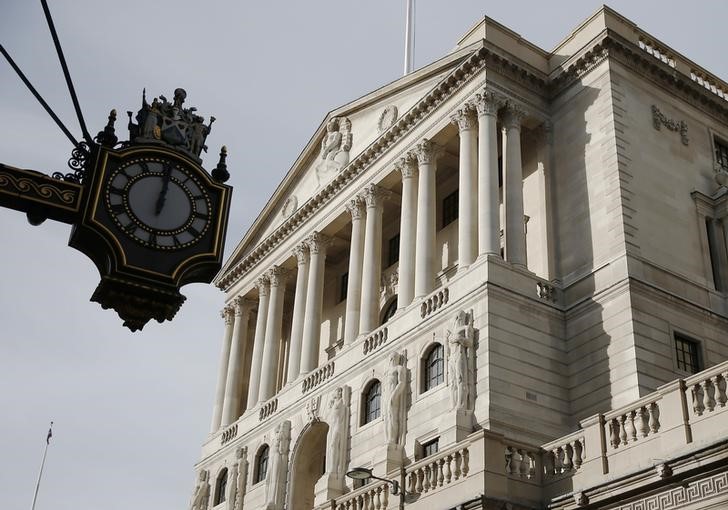By Geoffrey Smith
Investing.com -- U.K. consumers' expectations for inflation are rising further and further away from the Bank of England's 2% target, adding to the pressure on the central bank for more interest rate hikes.
Expectations for inflation over the next 12 months rose to 4.6% in May, according to a BoE survey conducted jointly with market research firm IPSOS that was published on Friday. In the last survey in February, the median expectation had only been 4.3%.
Moreover, consumers expect inflation to stay higher above target for longer. The median expectation for the following year rose to 3.4% in the previous survey, while the median expectation for the next five years rose to 3.5% from 3.3%.
The Bank of England had warned at its latest meeting that it expects to keep raising interest rates despite the economy heading for a contraction later this year, under pressure from big rises in regulated energy prices and this year's tax increases. Independent analysts have also warned that the negative after-effects of Brexit on the U.K.'s trading performance with Europe are also becoming harder to ignore.
Samuel Tombs, U.K. economist for Pantheon Macroeconomics, said via Twitter that the data "suggests the (Monetary Policy Committee) will stick to a 25bp rate hike next week."
That's despite the increasing adoption of half-point raises by other central banks around the world. The U.S. Federal Reserve, plus the central banks of Australia, New Zealand and India have all hiked by 50 basis points in recent weeks.
The Bank of England's chief economist Huw Pill said after the bank's last hike in May, “I personally think there is more that needs to be done in this transition from what has been a very supportive monetary policy for the economy really going back to the financial crisis, through the fallout from Brexit and the pandemic.” However, he cautioned that this need not necessarily mean moving to a "super restrictive stance, but to a stance that takes some of that support away and is more reflective of the fact inflation is higher and labor markets tighter.”
